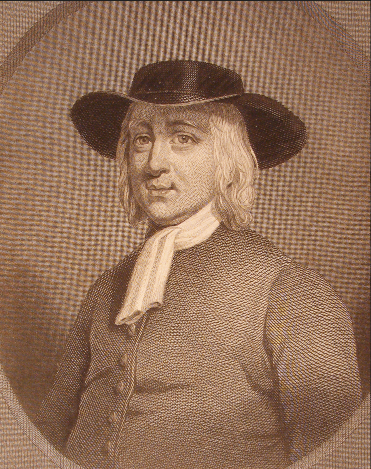History of the Quakers
The Quaker Movement, also known as the Religious Society of Friends, was founded in the 1600s by George Fox
Born into a Christian family in Leicestershire, Fox struggled with the Church’s teaching and practices of the time. He felt the Church leaders were not following Jesus’ example of living in light and truth.
Fox’s personal reflective approach to Christianity gained a considerable following, particularly in England and Wales, with women playing an important role in defining Quakers right from the early days. Friends met largely in silence, waiting and listening together for the leadings of the Spirit within.
Along with other religious dissenters of the time, these early Friends suffered persecution and many endured spells in prison; it was perceived they were challenging the social and political order of the day. They went out into their communities with a determination to live by their values and follow their inner spirit in the pursuit of a better world. George Fox’s advice to those early Quakers – let your life speak – is still cherished by Quakers.
Quakerism quickly spread to North America with the migration of English and Welsh Friends looking for a life free from persecution. Over the next 200 years, American missionaries and British settlers brought Quakerism to Africa, Australia, New Zealand, South and Central America, where they sought to alleviate inequality and social deprivation.

Many early Friends went into business as, before the 1870 Education Act, only non-Anglicans were allowed to go into higher education. Their businesses prospered in part due to a reputation for honest trading. The well-known firms of Cadbury’s, Terry’s, and Rowntree’s (which incidentally promoted drinking chocolate as an alternative to beer!) were Quaker in origin. Examples of some other Quaker-founded firms are Fox’s Biscuits, Clarks Shoes, Barclays and Lloyds banks. The larger firms tended to pioneer enlightened employment practices, a good example being the experimental village at Bournville, Birmingham. It was specially designed for the Bournville factory-workers, with community and welfare at its heart. It must be said only a few historical Quaker firms retain their Quaker connections today.
At the forefront of many of the big moments of progress in society have been Friends fighting for social justice, most notably in the establishment of equal marriage and equal rights for women, the abolition of slavery, and prison reform. Yet Quakers are perhaps best known for their commitment to peace. It comes from a belief that love is at the centre of existence and that all human life is of equal worth. It has led many Friends to refuse military service and to work creatively for peace, although it is up to individuals whether they wish to take such an absolute pacifist stance.
Sadly, along with these stories of courage and good works, contemporary historical research is revealing examples of widespread Quaker complicity, and even collaboration, in unimaginable suffering. For example, Friends have only recently begun to examine and acknowledge our role in slavery as players – slave-owners, ships’ captains, merchants, investors – in perpetration of one of the most egregious and long-standing crimes against humanity. Slavery was, and always will be, indefensible. We have individually and collectively started a journey of accountability and healing.
Here is a statement from a recent world conference of Quakers on healing racial injustices:
“Healing begins with sharing our stories, telling the truth, and listening deeply. There are truths which are uncomfortable to hear about Quaker involvement and complicity in past and present injustice. We need to build, or rebuild, trust…by examining our own Quaker communities, to engage in dialogue across the FWCC sections, to centre the voices of those who have endured pain, to take action with and alongside allies, to educate and train ourselves, and to share reports of what Friends are doing so that we can learn from one another.”
You may be interested to know that Quaker communities today are found across Africa, the Americas, Asia, Australasia, and Europe. We are connected through the Friends Worldwide Committee for Consultation (FWCC).
If you would like to read more on our history, please click here to go to the Quakers in Britain website here.

